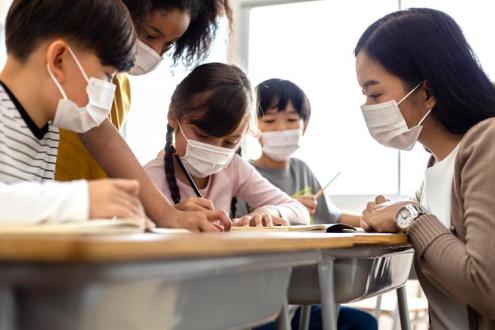- Managing your Practice
-
- Your Benefits
-

Introducing the ultimate Club MD experience
From work to play, and everything in between, we provide you with access to hundreds of deals from recognizable, best-in-class brands, elevating every facet of your life – from practice supports to entertainment, restaurants, electronics, travel, health and wellness, and more. Your Club MD membership ensures that these deals are exclusive to you, eliminating the need to search or negotiate.
Welcome to the ultimate Club MD experience. Your membership, your choices, your journey.
-
- Advocacy & Policy
-
- Collaboration
- News & Events
-

Stay Informed
Stay up to date with important information that impacts the profession and your practice. Doctors of BC provides a range of newsletters that target areas of interest to you.
Subscribe to the President's Letter
Subscribe to Newsletters
-
- About Us
-

A safe return to school
September 2, 2021
Together for Health
With September upon us, BC students will be returning to school and returning to full-time, in-person learning after temporarily spending part of last year learning remotely due to the COVID-19 pandemic. While many teachers, parents, and students welcome the return to the classroom and to socialization, others are feeling anxious as COVID-19 cases continue to be high. The balancing act between physical safety and mental wellness is top of mind for many, so here are a few ways families – and teachers – can work together to prepare for a return to school.
A safe return to school
The BC Government recently announced it’s back-to-school plan which includes:
 A mask mandate for all students in grades 4-12, all K-to-12 staff and visitors, and on all college and university campuses (including lobbies, hallways, stairwells, elevators, classrooms and labs)
A mask mandate for all students in grades 4-12, all K-to-12 staff and visitors, and on all college and university campuses (including lobbies, hallways, stairwells, elevators, classrooms and labs)- Proof of vaccination for post-secondary students living in on-campus housing
- Spending of $87.5M to improve school ventilation
- Daily cleaning and disinfecting protocols
- A continued focus on hand hygiene
- A requirement for students to complete daily health checks and stay home when feeling sick
As well, health authorities have the ability to introduce additional regional measures specific to individual schools or school districts in instances where community transmission rates are higher. While Doctors of BC believes these are good first steps toward keeping BC students safe, we encourage government to be more proactive and implement mandatory vaccinations for all individuals working in education (K-12 and post-secondary).
The impact of remote learning
Last year, research by the BC Centre for Disease Control (BCCDC) showed that remote learning had a significant impact on students, including interrupted learning, increased child stress, decreased connection, increased loneliness and mental and emotional health effects. Studies by both the Vancouver Coastal Health Authority and Fraser Health Authority showed that after resuming in-class learning, schools were not a significant source of COVID-19 transmission.
Mental wellness checks
With many uncertainties still in existence, it’s normal for parents and students to feel some anxiety in the face of those unknowns. Here are a few steps parents can take with their younger children to prepare their return to school:
- Address yours and your child’s anxiety: addressing your own feelings is the first step towards helping your kids manage their own worries. Children are emotional sponges and when they sense that we are okay, they begin to relax too. When it comes to your child’s anxiety, it’s important to honour, validate and acknowledge their point of view as legitimate. Talk to them about their fears, their worries, and answer their COVID-19 questions. Reach out to friends, families and other parents, and make use of the support services available for both parents and children.
- Emphasize safety measures and talk about the protocols: Having an understanding of what measures have been taken to ensure it’s safe for kids to return to school and what protocols are in place to keep them safe is important in reassuring children about their return to school. It also eliminates any unknowns when it comes to specific COVID-19 protocols in the classroom and on the playground.
- Remind everyone about the benefits of socialization: It’s important to remind yourself and your children that safely connecting with friends and teachers can actually help our mental well-being.
For more information on the BC Government’s back-to-school plan click here.




